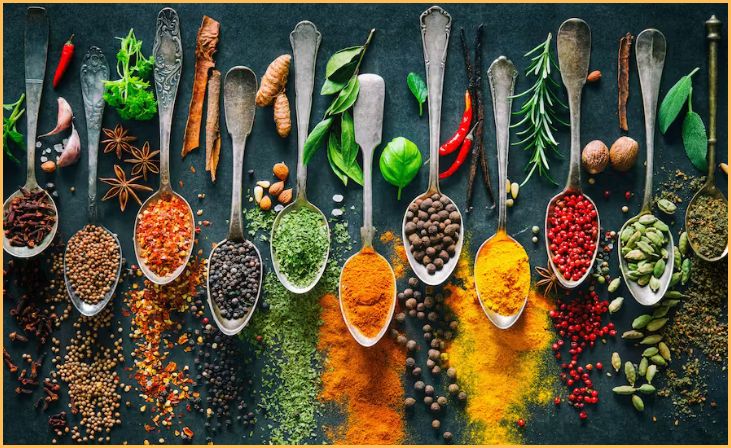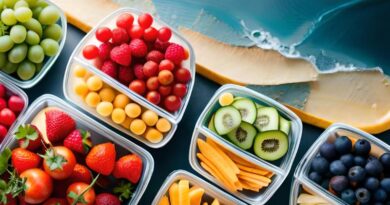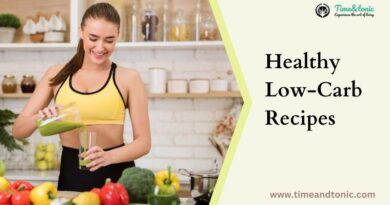10 Eating Habits That Slow Down Aging After 50
Eating Habits That Slow Down Aging After 50 – As we age, maintaining optimal health becomes increasingly important, and our dietary choices play a pivotal role in this journey. Beyond merely sustenance, nutrition becomes a key factor in combating the effects of aging, especially after the age of 50.
This guide explores essential eating habits that can actively slow down the aging process. From nutrient-rich foods and essential fatty acids to hydration and mindful meal timing, we delve into the science-backed principles that contribute to overall well-being.
By adopting these habits, individuals can promote longevity, support cognitive function, preserve muscle mass, and enhance the quality of their later years. Join us on a journey towards a healthier, more vibrant life through informed and intentional nutritional choices.
Eating Habits That Slow Down Aging After 50
Balanced Diet

A balanced diet for those over 50 should include a variety of nutrient-rich foods. Focus on fruits, vegetables, whole grains, lean proteins, and healthy fats. Stay hydrated with plenty of water. Incorporate omega-3 fatty acids from sources like fatty fish and nuts. Minimize processed foods, limit added sugars, and choose antioxidant-rich foods.
Ensure adequate protein for muscle maintenance. Support bone health with sufficient calcium and vitamin D. Practice portion control and include anti-inflammatory herbs and spices. Remember, individual needs vary, so consult a healthcare professional for personalized advice. Maintain a healthy lifestyle with regular exercise, proper sleep, and stress management for overall well-being.
Also, Read – Natural Ways to Remove Dark Spots
Hydration
Maintaining adequate hydration is vital for those over 50. Water plays a crucial role in supporting bodily functions, including digestion, circulation, and temperature regulation.
Aim for at least eight glasses of water daily, adjusting for factors like activity level and climate. Hydration is especially important as aging can reduce the sensation of thirst. Include hydrating foods like fruits and vegetables in your diet.
Watch for signs of dehydration, such as dark urine or dizziness. Carry a reusable water bottle to encourage regular intake. Remember that staying well-hydrated contributes to overall health, promoting skin elasticity, joint function, and optimal organ performance.
Omega-3 Fatty Acids
Incorporating omega-3 fatty acids into your diet is crucial, especially for those over 50. Found in fatty fish like salmon, chia seeds, flaxseeds, and walnuts, omega-3s offer numerous health benefits. These essential fats support heart health, reduce inflammation, and may enhance cognitive function. Consider at least two servings of fatty fish per week or plant-based alternatives.
Omega-3s are known for their role in maintaining healthy cell membranes and promoting overall well-being. If dietary intake is insufficient, supplements can be considered, but it’s advisable to consult with a healthcare professional for personalized recommendations. Prioritize these fats for their potential to contribute to a healthier aging process.
Limit Processed Foods
Limiting processed foods is crucial for those over 50. These foods often contain added sugars, unhealthy fats, and preservatives linked to health issues. Opt for whole, unprocessed options like fruits, vegetables, lean proteins, and whole grains.
Processed foods can contribute to inflammation, weight gain, and other age-related concerns. Check labels for hidden additives and prioritize fresh, minimally processed choices to maximize nutritional benefits.
Cooking at home allows better control over ingredients. By reducing processed food intake, you support better overall health, energy levels, and long-term well-being. Make informed choices to promote healthy aging and minimize the potential risks associated with processed food consumption.
Antioxidant-Rich Foods

Including antioxidant-rich foods in your diet is vital for those over 50. Berries, dark leafy greens, nuts, and seeds are excellent sources. Antioxidants help combat oxidative stress, associated with aging and various health issues.
These compounds neutralize free radicals, supporting overall cellular health. Colorful fruits and vegetables often signify high antioxidant content, so diversify your plate. Green tea and dark chocolate are also antioxidant-rich options.
These foods contribute to skin health, immune function, and may reduce the risk of chronic diseases. Prioritize a diet rich in antioxidants to promote longevity, well-being, and mitigate the effects of oxidative damage as you age.
Also, Read – Wedding And Special Event Nail Designs
Limit Added Sugar
For those over 50, limiting added sugar is crucial for overall health. Excessive sugar intake is linked to inflammation, weight gain, and chronic conditions. Check food labels for hidden sugars and opt for natural sweeteners sparingly.
Choose whole fruits over sugary snacks and beverages. Consuming too much sugar can contribute to insulin resistance and accelerate aging processes. Be mindful of sugary condiments and processed foods.
A low-sugar diet supports stable energy levels, reduces the risk of diabetes, and promotes heart health. Prioritize whole, unprocessed foods to minimize added sugar intake, fostering a healthier and more balanced lifestyle as you age.
Protein Intake
Maintaining adequate protein intake is essential for those over 50. Include lean meats, poultry, fish, dairy, legumes, and plant-based sources like tofu. Protein supports muscle maintenance and repair, crucial for aging bodies. Aim for a balanced distribution of protein throughout the day to maximize its benefits. This nutrient aids in preserving bone density and strength.
Consider protein-rich snacks for sustained energy. As metabolism may slow with age, protein can also assist in weight management by promoting satiety. Consult a healthcare professional or a registered dietitian to determine your specific protein needs based on your health status and activity level, ensuring optimal well-being as you age.
Calcium and Vitamin D
Ensuring sufficient calcium and vitamin D intake is vital for those over 50. Calcium supports bone health, found in dairy products, leafy greens, and fortified foods. Vitamin D aids calcium absorption and is synthesized through sunlight exposure. Include sources like fatty fish and fortified cereals.
Aging can lead to decreased bone density, making these nutrients crucial for preventing osteoporosis and fractures.
Consult a healthcare professional to determine your specific needs and consider supplements if dietary intake is insufficient. Balanced consumption of calcium-rich foods and maintaining adequate vitamin D levels through sunlight or supplementation supports overall skeletal health and reduces the risk of age-related bone issues.
Portion Control
Practicing portion control is key for those over 50. Be mindful of serving sizes to avoid overeating and support weight management. Use smaller plates to encourage moderation.
Listen to your body’s hunger and fullness cues, and avoid distractions while eating. Chew slowly to allow your body to signal fullness. Opt for nutrient-dense foods to satisfy hunger with fewer calories.
Pre-portion snacks to prevent mindless eating. Understanding proper portions helps regulate calorie intake, supporting overall health and metabolism. By adopting portion control habits, you can maintain a healthy weight, reduce the risk of overconsumption-related issues, and promote optimal well-being as you age.
Herbs and Spices

Incorporating herbs and spices into your diet is a flavorful and healthful practice, especially for those over 50. Herbs like turmeric, ginger, garlic, and spices such as cinnamon not only enhance taste but also offer anti-inflammatory and antioxidant benefits.
Turmeric, in particular, contains curcumin, known for its potential to reduce inflammation. Experiment with fresh herbs for added nutrients and use them to season dishes instead of relying on salt.
These natural flavor enhancers may contribute to overall well-being, support digestion, and potentially reduce the risk of age-related chronic diseases. Embrace the diverse tastes and health benefits that herbs and spices can bring to your meals.
Conclusion
In conclusion, embracing mindful eating habits after the age of 50 can be a transformative step towards graceful aging. The amalgamation of nutrient-rich foods, hydration, and strategic meal planning empowers individuals to fortify their well-being and defy the conventional impacts of time.
By prioritizing these principles, one not only invests in physical health but also nurtures the vitality that adds richness to the later chapters of life. Remember, the key lies in sustained commitment to these habits, forming a resilient foundation for a fulfilling and age-defying journey. Here’s to a vibrant and thriving future, achieved through the simple yet profound act of mindful nutrition.
FAQs
Nutrition plays a vital role in maintaining overall health, preserving muscle mass, supporting cognitive function, and combating the effects of aging. After 50, adopting specific eating habits becomes essential to promote longevity and well-being.
Berries, dark leafy greens, nuts, and seeds are excellent sources of antioxidants. These foods help neutralize free radicals in the body, reducing oxidative stress and supporting cellular health.
Omega-3 fatty acids, found in fatty fish, flaxseeds, and walnuts, have anti-inflammatory properties and support brain health. They play a crucial role in maintaining cognitive function, which can be particularly beneficial as we age.




